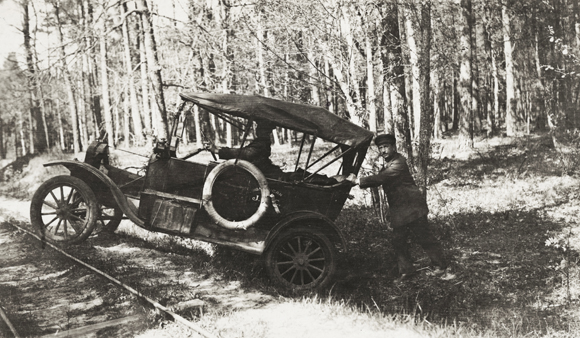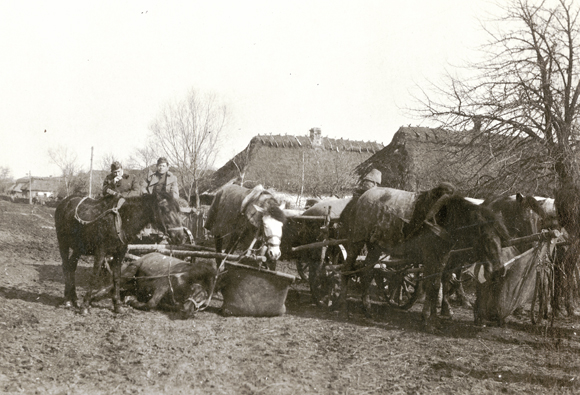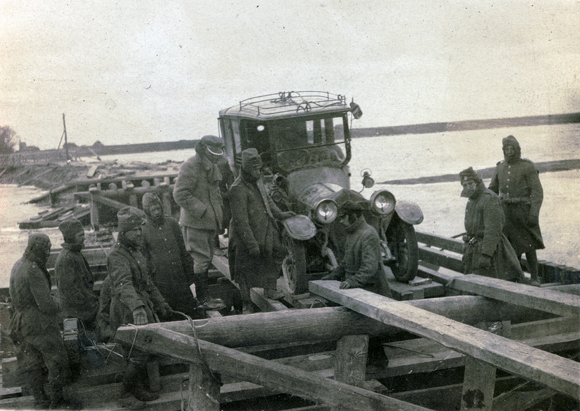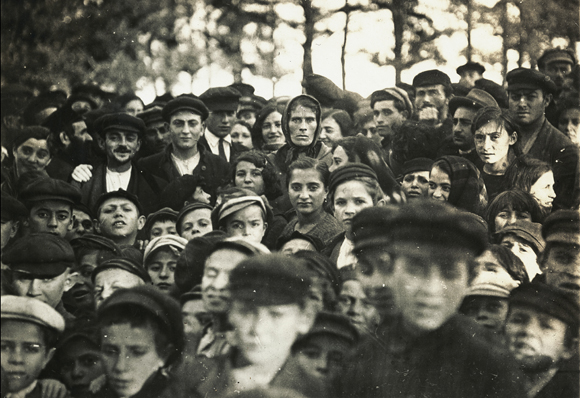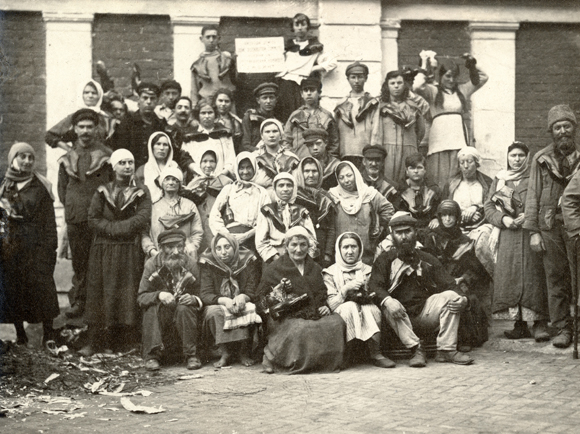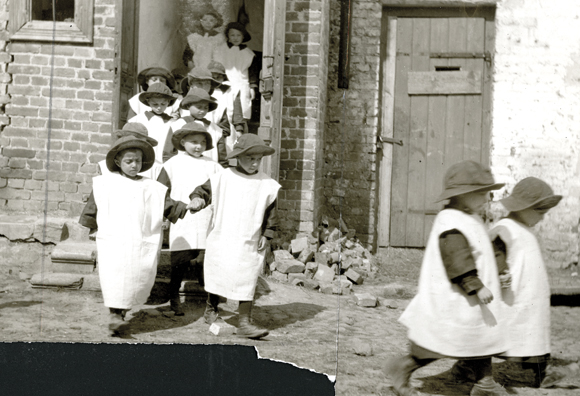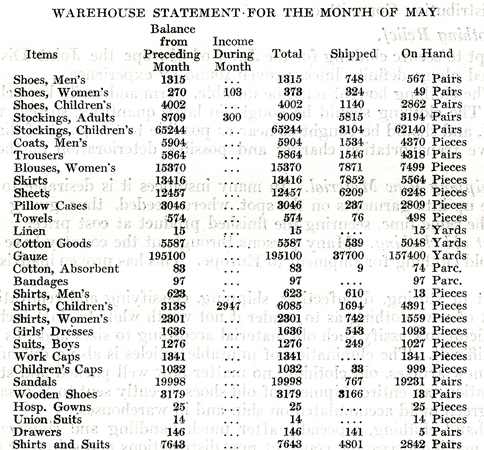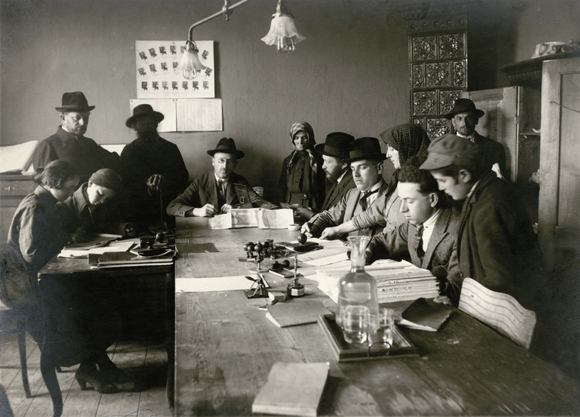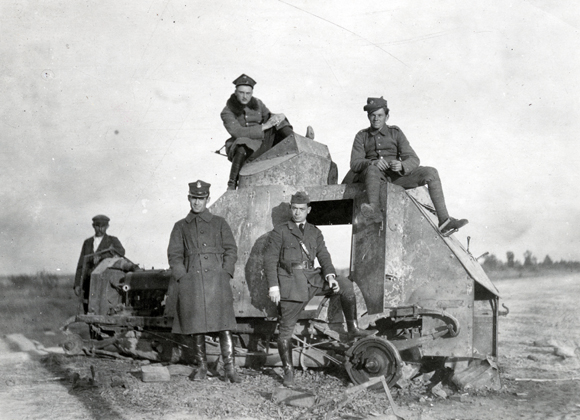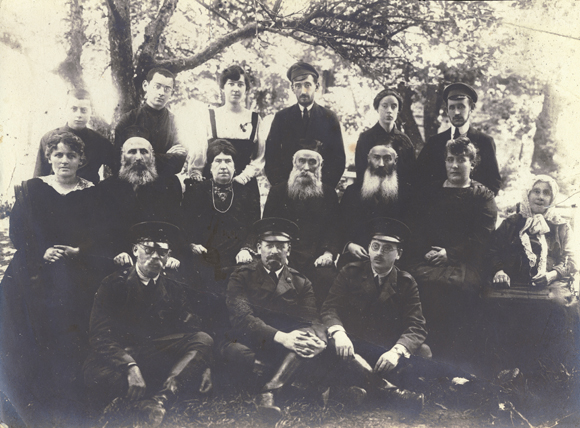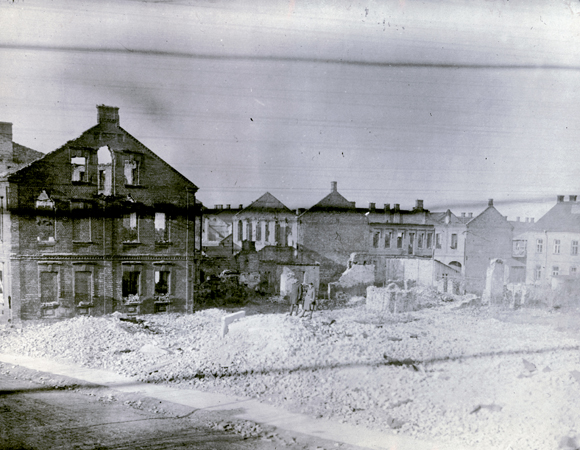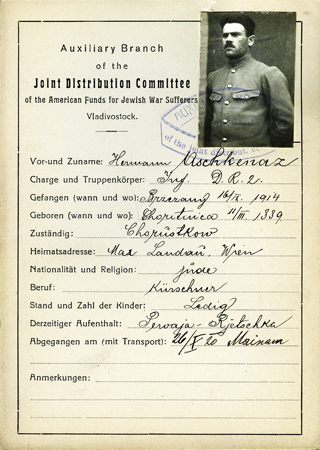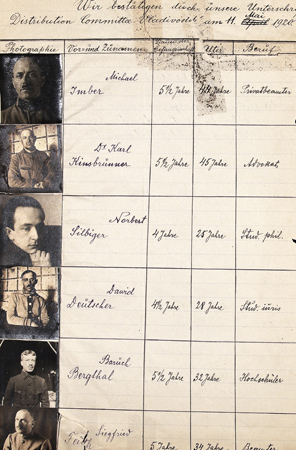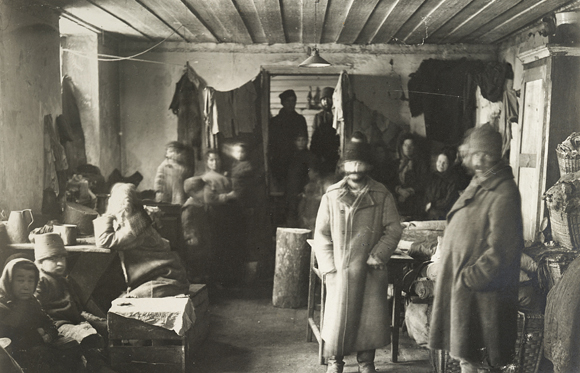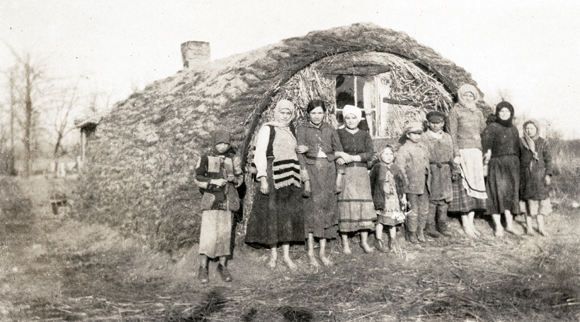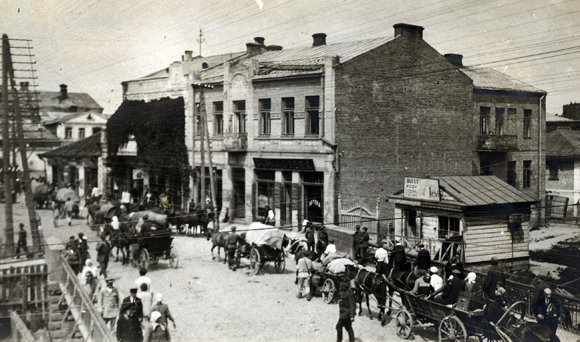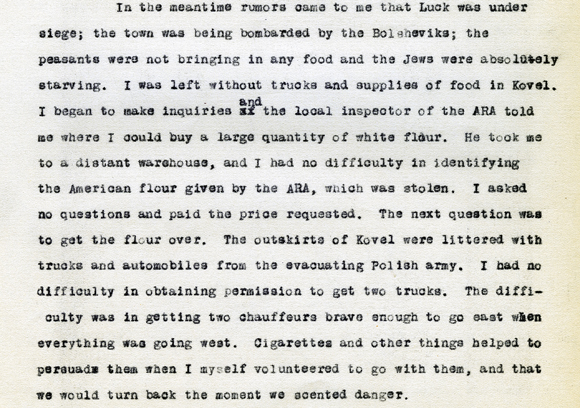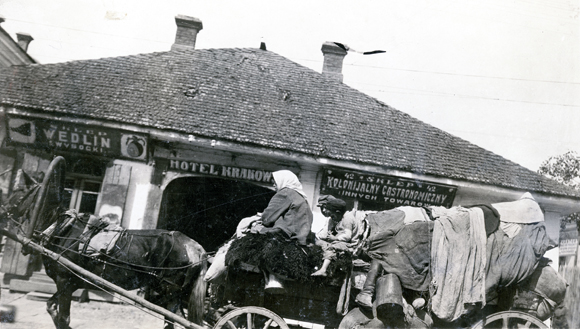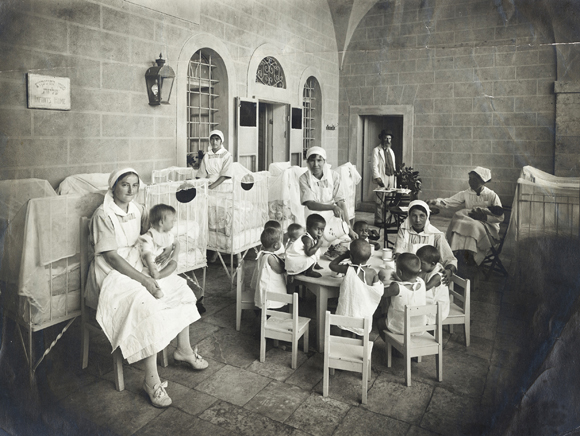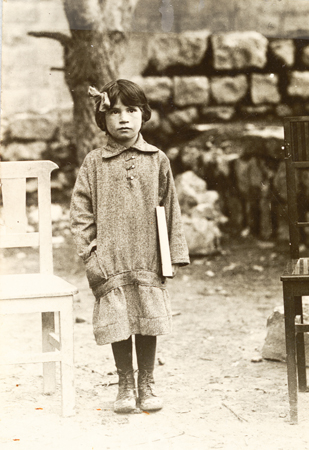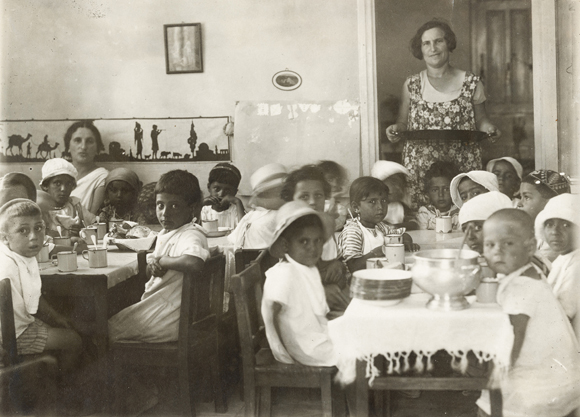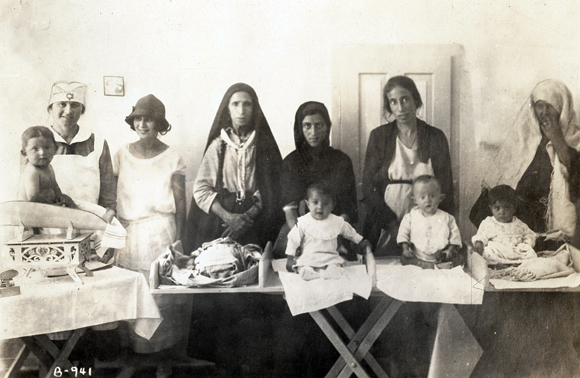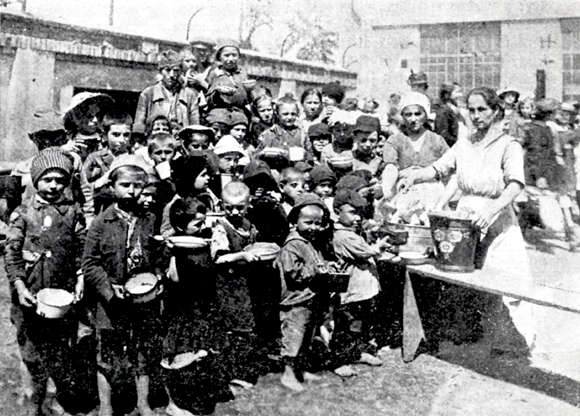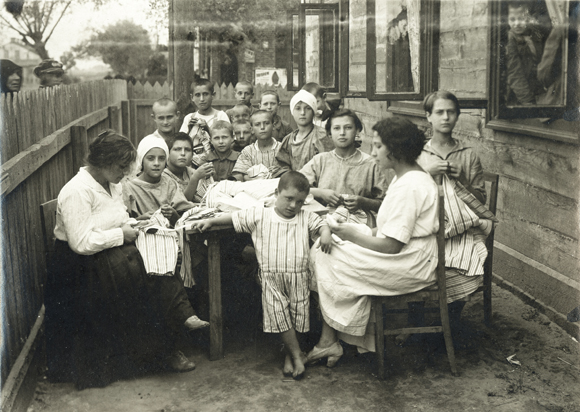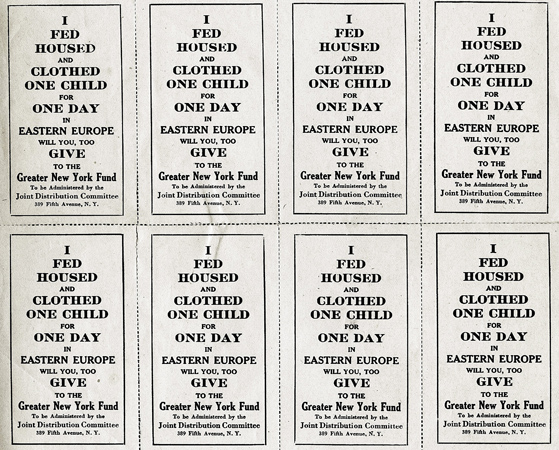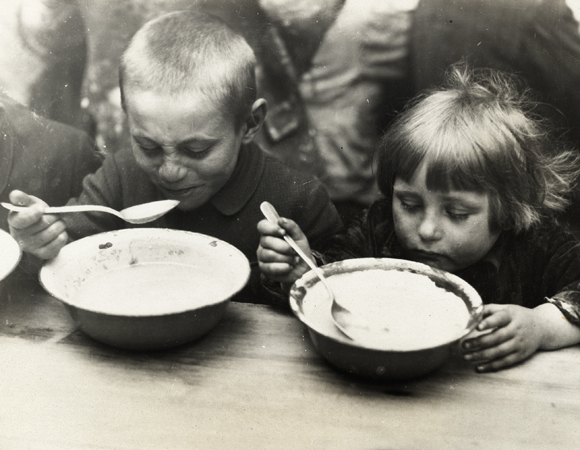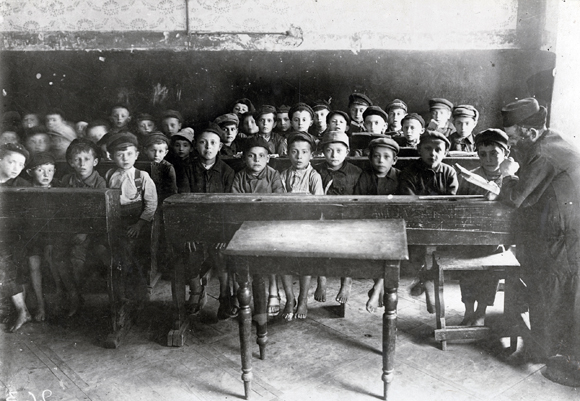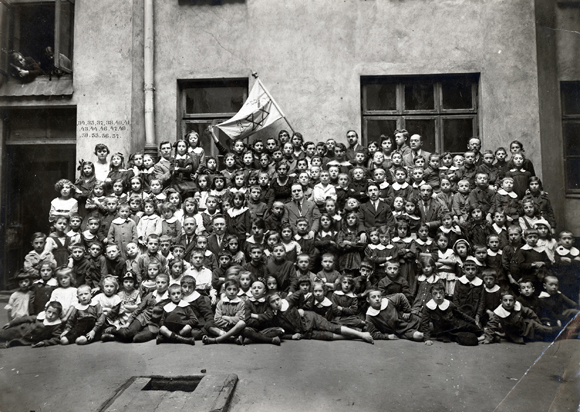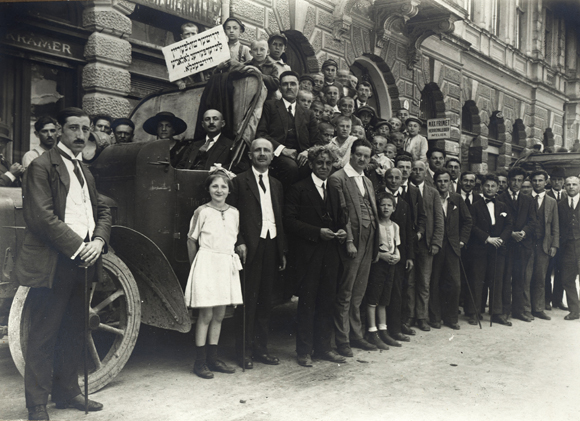Informed Function - An Outstretched Arm
A Joint Effort: JDC's Beginnings, 1914-1921
Informed Function [An Outstretched Arm]
While JDC field reports revealed a growing number of pressing needs abroad, contributions in America were shrinking. Every dollar needed to be spent as judiciously as possible. A successful outcome required functionally-run departments that were broadly coordinated yet flexible enough to address locally specific needs. These were launched in the fall of 1920.
Getting Around
Getting food, packages, remittances, and correspondence to individuals was critical. A new Shipping Department based in Poland purchased warehouses, cars and trucks to serve close to 4,000 communities. JDC field workers could now reach the most isolated towns. But it was still no small task to deliver the goods.
One Step Ahead of Winter
A London Purchasing Department coordinated purchases, working with agents in other countries to secure the best prices. In the first seven months of 1920, it distributed $900,000 in clothing to Poland, Ukraine, Lithuania, Latvia, Romania, and Austria and sent $500,000 in supplies for local clothing manufacture by Jews in Eastern Europe.
Staying the Course in Volatile Times
Wartime conditions greatly impeded relief efforts. JDC continued on in the face of chaos: battleground dangers, military blockades, transportation breakdowns, supply shortages, and steeply fluctuating currencies. Delays, sometimes months long, were common. The murder of two JDC representatives saddened all, but did not impede further operations.
Helping The Displaced
The Refugees and Repatriates Department opened in Poland, Romania, the new Baltic States, and Central Europe. In each region, it funneled aid, stimulated self-help projects, and interceded with local authorities on behalf of the displaced.
Moving with the Battlefield
In the push and pull of the Soviet-Polish conflict, JDC workers provided beleaguered Jews whatever help they could. As Soviet armies advanced and Polish forces evacuated, JDC offered relief, remaining as long as possible "to lend moral support." When Polish armies again advanced, JDC followed in their wake, administering emergency aid.
Child Care in Palestine
In summer 1918, all orphans in Jerusalem were registered; those not housed in orphanages were placed with private families. A year later, JDC appointed a Palestine Orphan Committee to conduct child care. This program evolved over time into a broad system of children's services, including summer camps, workshops, and trade schools.
Attention to Details: Child Care in Eastern Europe
Beginning in April 1919, ARA's European Children's Fund provided basic provisions to some 300,000 Jewish children. Bogen anticipated that program's end and knew of some 200,000 more children needing help. The ongoing Soviet-Polish War and pogroms would only increase that number. JDC initiated child care services focusing on the needs of orphans.
Protected Values: Culture, Religion and Education
JDC subsidized synagogues, schools, student groups, and cultural institutions of all kinds in Europe, Palestine, and elsewhere. The three constituent Committees provided discretionary funds based on an agreed-upon percentage of contributions independently raised.

![Informed Function [An Outstretched Arm]](http://archives.jdc.org.php7-34.lan3-1.websitetestlink.com/wp-content/uploads/2017/02/ny_07225_da1.jpg)
